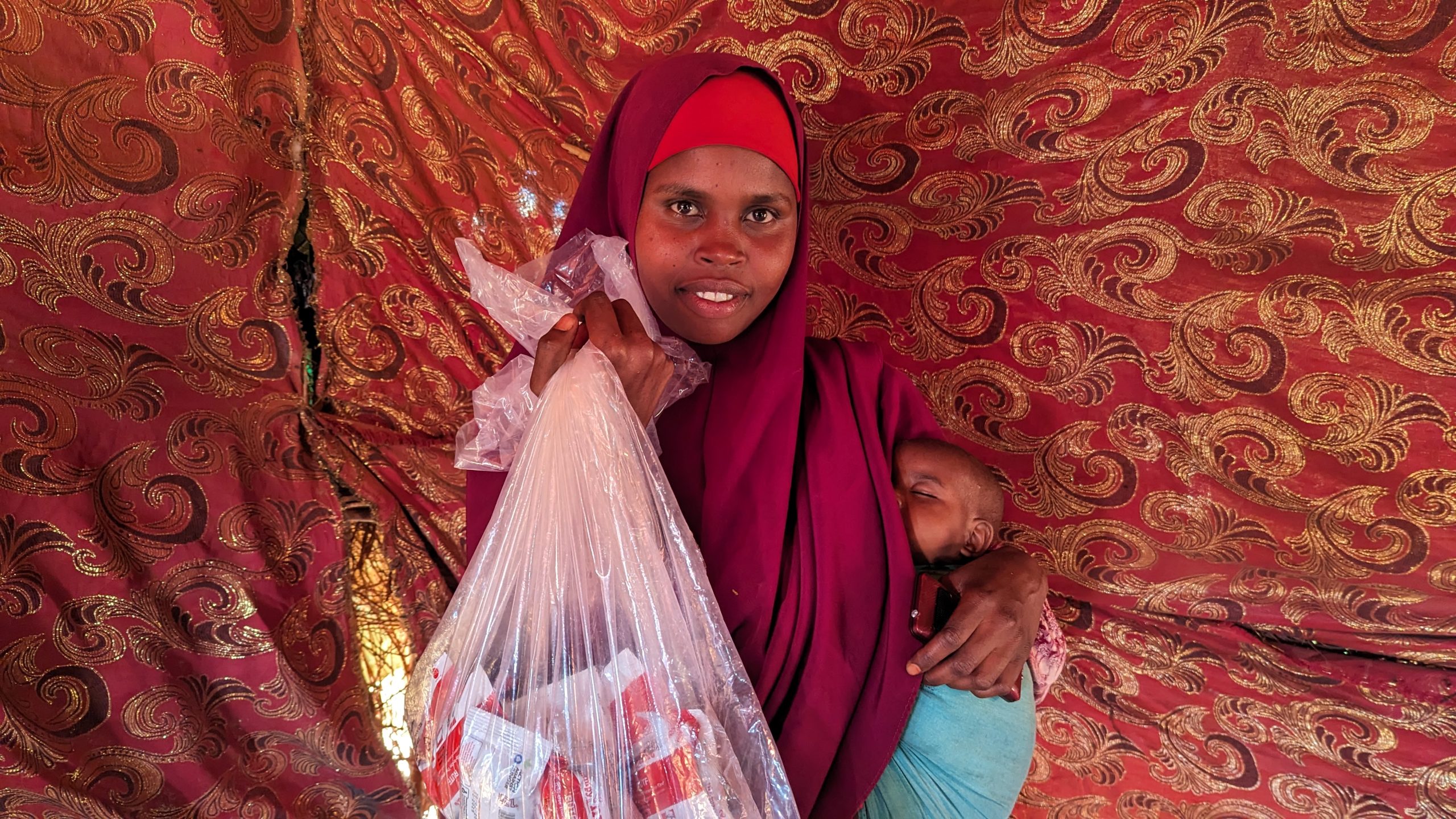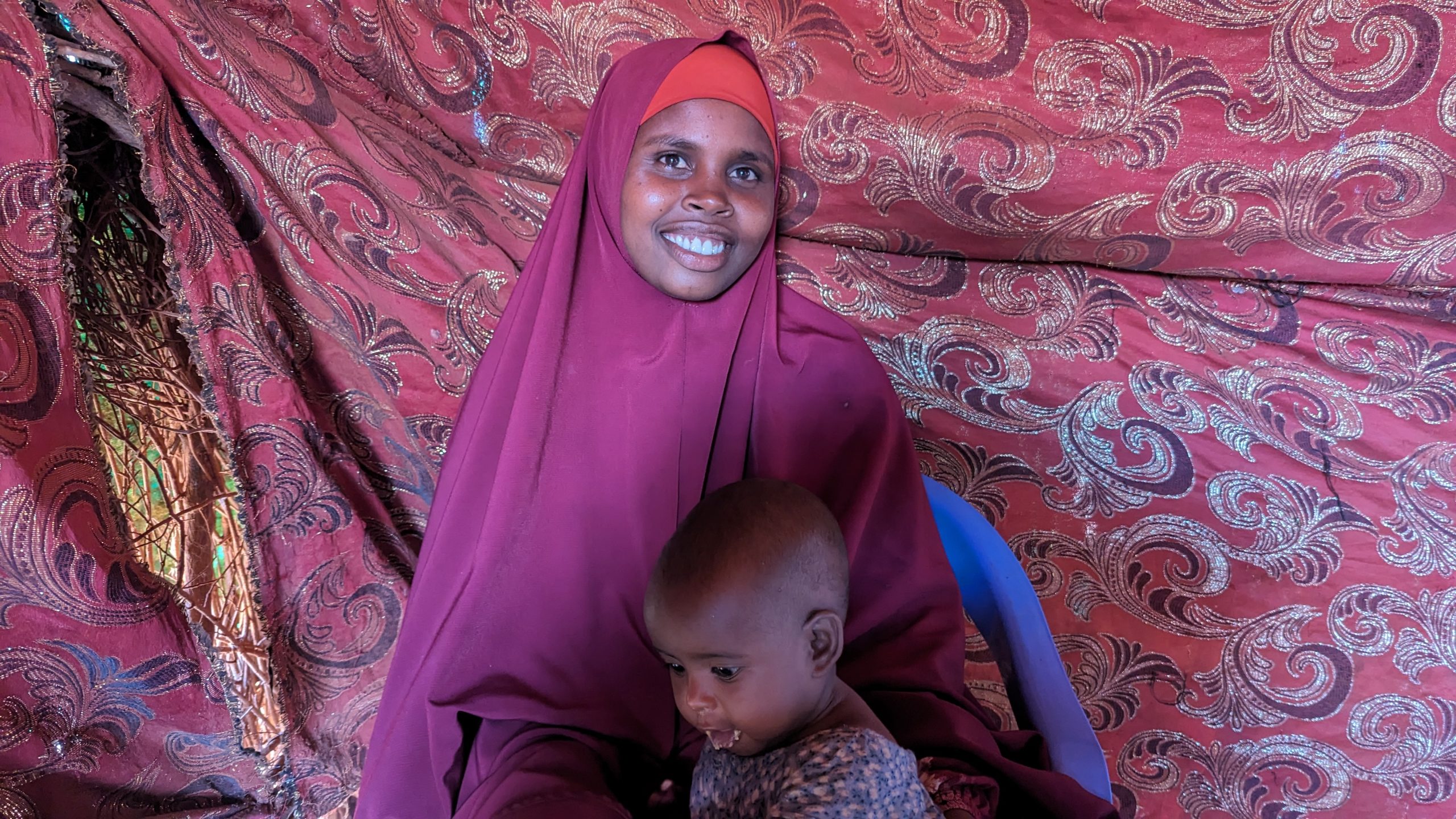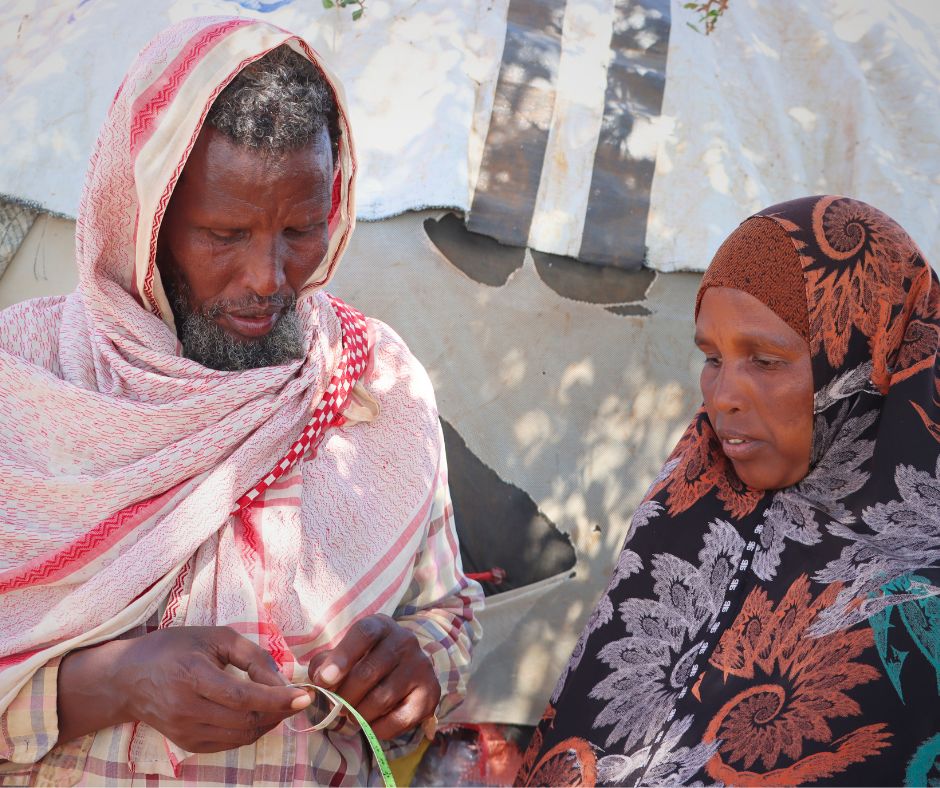Nadiifo Abdullahi’s heart brims with joy as she witnesses her 8-month-old daughter, Falastin, reach a significant milestone—sitting up on her own and displaying a willingness to crawl. This developmental progress fills Nadiifo with renewed hope as she looks forward to witnessing her daughter’s energy levels rise and her playful nature blossom even further.
“I used to carry her on my back or lay her down on a mat for sleep. But now she shows a strong desire to sit up, crawl, and is bursting with energy,” said Nadiifo.
Three weeks ago, the promising growth journey of Falastin was interrupted by the destructive floods that ravaged Baidoa, Somalia, washing away a significant portion of the town. As a result, Nadiifo’s family had to evacuate from the Halimay displacement camp in Baidoa, where they had been residing since late 2020, and seek refuge in a temporary camp few kilometers away. The transition to this new location brought about challenging circumstances since they arrived empty-handed, with their food supplies, including flour and sugar, soaked and ruined by the floods.
The El Niño floods, which began in early October in Somalia, have had a devastating impact on over 2 million individuals, leading to the displacement of more than 750,000 people. In the town of Baidoa, there are approximately 500 displacement camps that host around 600,000 individuals who have been forced to leave their homes due to previous crises, primarily caused by droughts and now floods—both induced by climate change. The transportation of essential supplies and goods between locations has been challenging, mainly due to the control exerted by non-state actors and the imposition of high taxation on goods. Moreover, the recent disruptions in road connections have worsened the scarcity of food supplies, resulting in a surge in food prices.
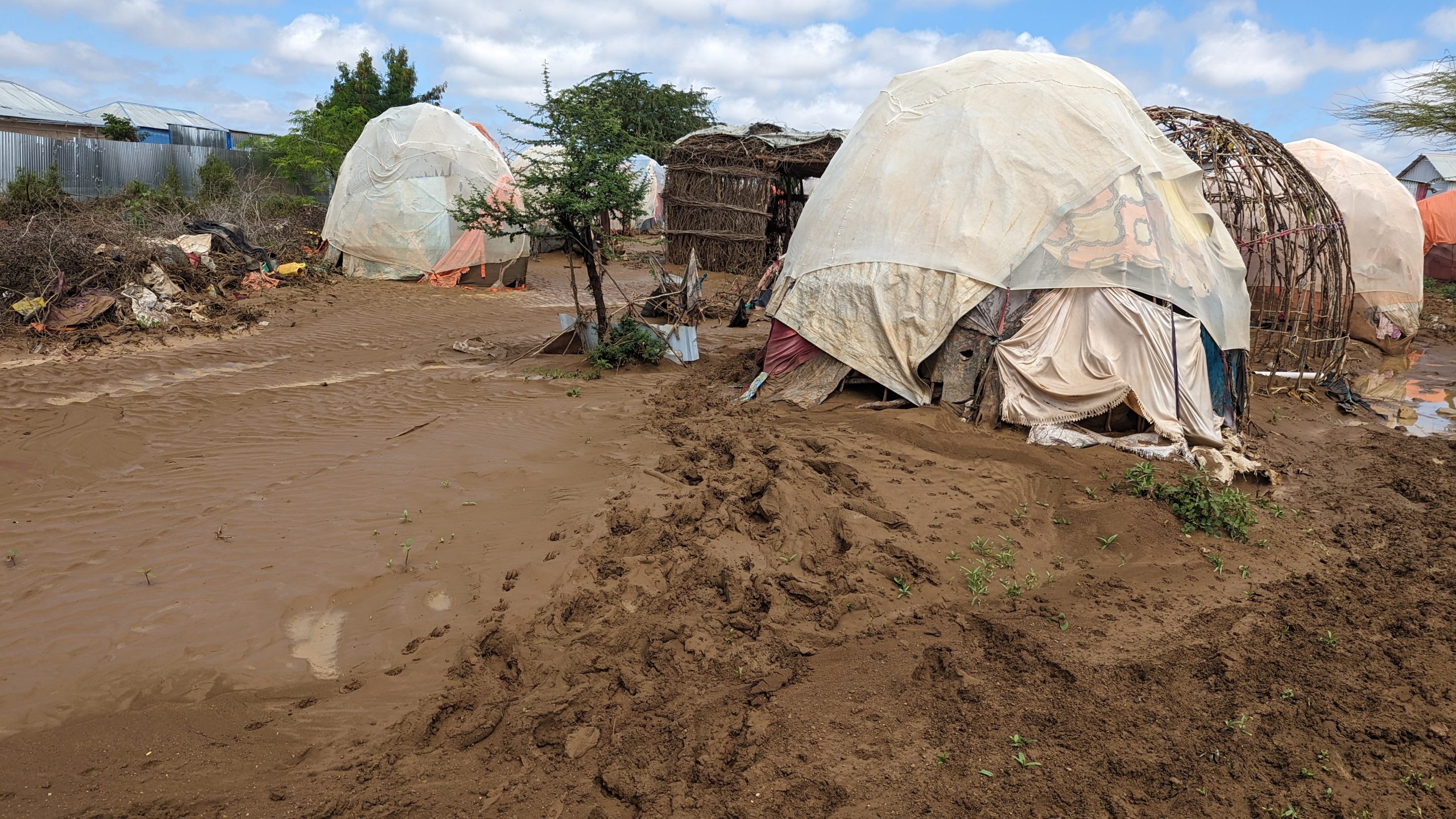
Families like Nadiifo’s, who have been affected by the floods, face immense challenges in meeting their basic needs such as food, shelter, water, and medicine. Nadiifo’s husband, 35-year-old Mohamed Aden, went back to their nomadic farmland in Goofa Yarow, which is about 30 kilometers away, on October 12th, coinciding with the onset of the rainy season. His intention was to plant some millet in hopes of benefiting from the rains. However, he left without the seeds. Nadiifo said that he planned to borrow a small amount of money to purchase the seeds.
A month after Mohamed left, their daughter Falastin was growing weaker. Although Nadiifo breastfed her, the lack of food and money to buy what they needed was taking a toll on her health.
Nadiifo observed, “Her neck was narrowing, and I could see her bones beginning to protrude slowly.” This was a result of Falastin falling ill with symptoms of vomiting and diarrhea.
The surveillance team from the Caafimaad Plus Consortium partner, Action Against Hunger, conducted screenings for Falastin and other individuals in the camp. It was discovered that Falastin had a mid-upper arm circumference of 11 cm, indicating malnutrition. She was then enrolled in a treatment program that initially focused on addressing her diarrhea and subsequently continued with nutrition treatment.
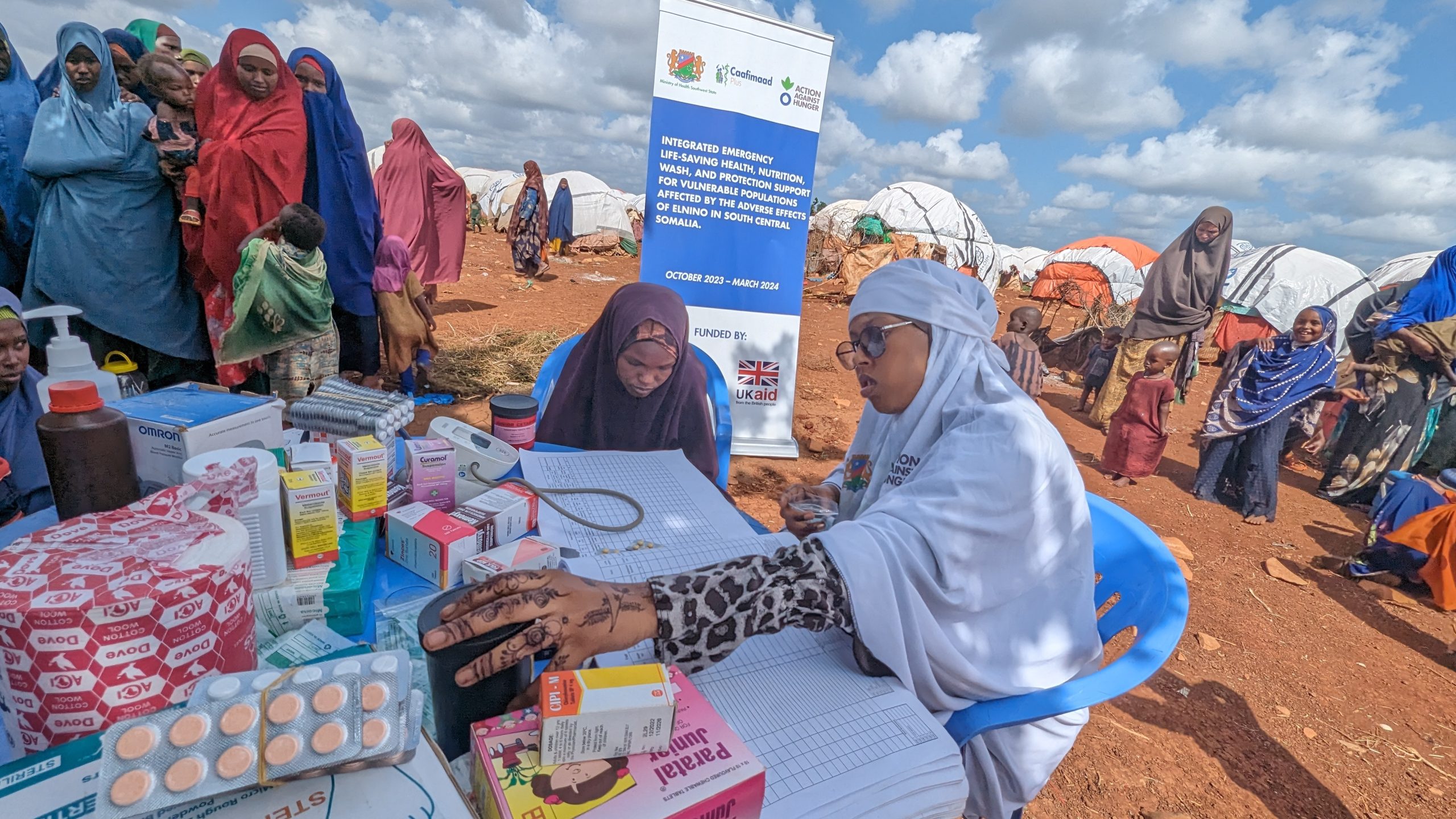
After three weeks of receiving medical and nutritional support for her diarrhea, which began on October 19th, Falastin began to show signs of improvement. Despite the challenges she faces, Nadiifo smiles as she witnesses her daughter’s progress. Falastin is now starting to sit up and displaying eagerness to crawl.
The mobile team is delivering critical emergency assistance, including nutrition, medical, and hygiene supplies, to the affected population. This essential assistance is made possible through funding from the British Embassy Mogadishu. Starting in October 2023, the British Embassy in Somalia has granted funding for a six-month period. This funding is playing a vital role in providing integrated emergency life-saving support in health, nutrition, WASH (Water, Sanitation, and Hygiene), and protection to nearly 1 million vulnerable Somalis who have been impacted by the adverse effects of El Niño in South Central Somalia.
The mobile outreach team is deployed not only in Baidoa but in thirteen districts severely affected by the floods in Somalia. Baidoa is among these districts, with over 470,000 families in need of assistance.
Mohamed, Nadiifo’s husband, is now back at the nomadic farm that he left in late 2020. His work of laboring, riding a wheelbarrow and carrying goods for people in the market at a fee, has been challenging. Since the rains started, the income from that work has been shrinking, so Mohamed has resorted to going back to farming. In 2020, he sold the remaining cattle the family had, and with some of the cash, he bought the wheelbarrow that provided for his family. “My husband felt that the cattle would not survive during the upcoming Jilaal season – winter in Somalia,” she said. When Falastin is better and reaches the age of one and a half years, Nadiifo plans to start doing laundry work to support her family.
The floods have led to the outbreak of waterborne diseases such as acute watery diarrhea, cholera, malaria, and others. The Caafimaad Plus Consortium is currently responding to these outbreaks in different districts, including Deynile, Kahda, Baidoa, Dolow, Luuq, and Galkacyo, among others.
With funding from the British Embassy Mogadishu, the consortium is also building emergency latrines, chlorinating wells, distributing hygiene kits, and providing aqua tabs to reduce the spread of these diseases and provide relief for the affected families.
Nadiifo’s hope is restored now that her daughter is beginning to crawl. However, her baby needs more days to continue with the treatment until she is fully considered recovered by the mobile team. The family continues to borrow until Mohamed returns, but Nadiifo hopes he will bring something home.
Caafimaad Plus Consortium is the largest health consortium in Somalia, providing integrated life-saving health, nutrition, WASH, and protection assistance to crisis-affected families. The consortium is funded by the British Embassy Mogadishu.
